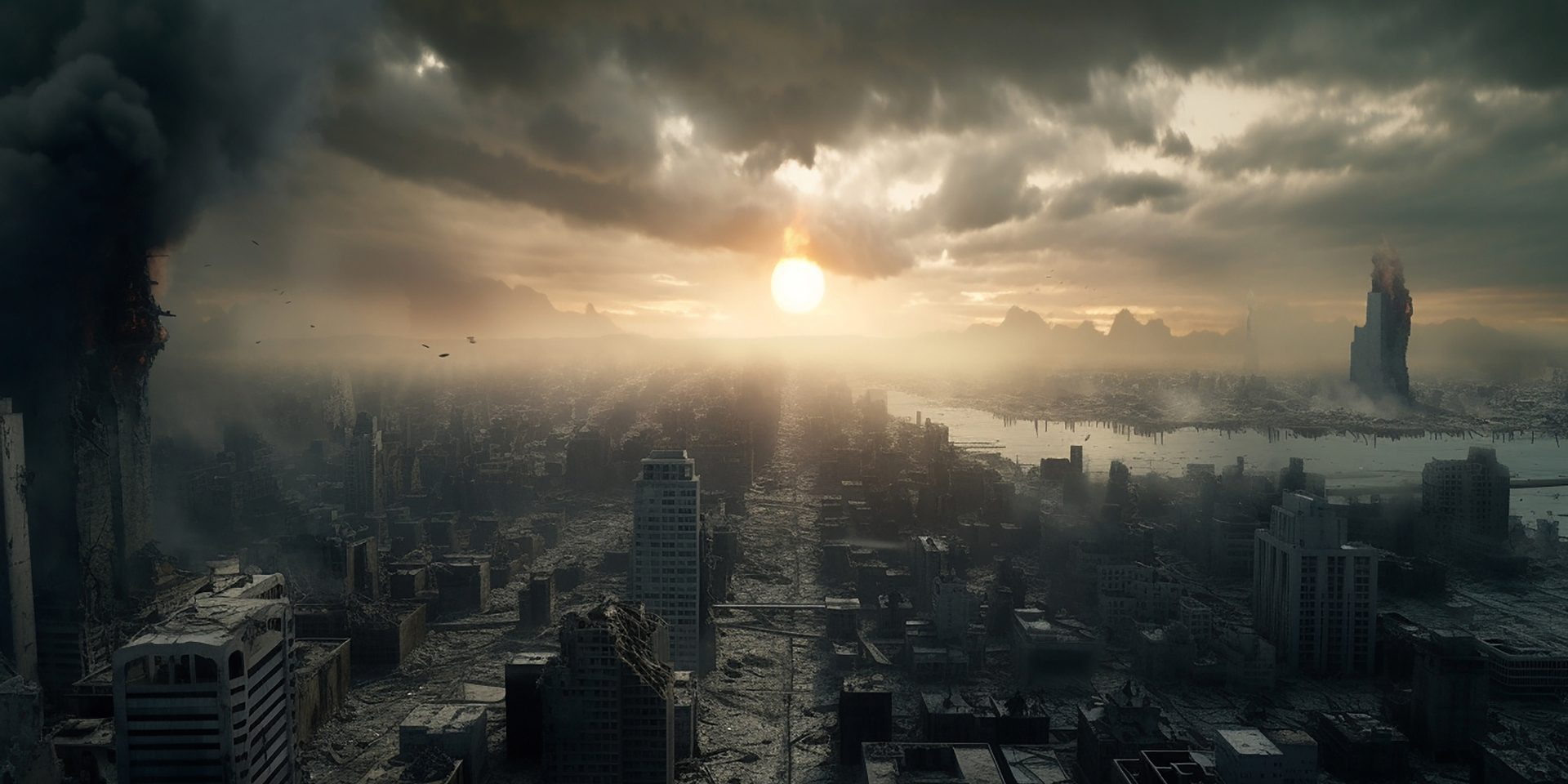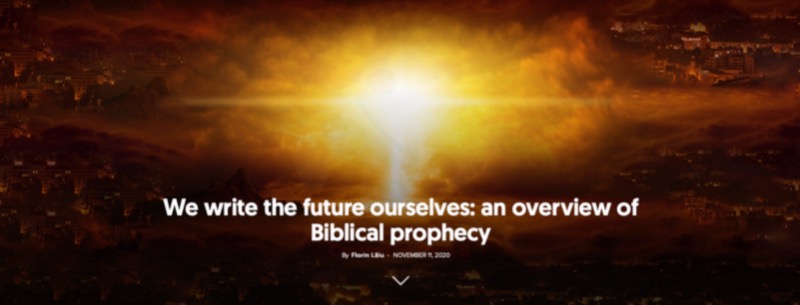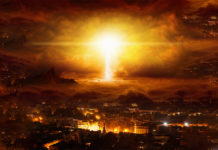With news that the far-right Freedom Party (PVV) has won the election in the Netherlands, once again there is talk of an exit from the European Union on the horizon—this time being called “Nexit”.
Geert Wilders, the politician with extreme views on immigration and Islam is the leader of the PVV and (at the time of writing) is still struggling to cobble together a coalition to lead the country. When the UK voted to leave the Eurozone in 2020, it was the only country to do so. Now there is talk in the Netherlands of a referendum that would vote on the same question.
Unity in Europe?
While, for a time, it seemed the European Union was going to succeed in its goal of creating a united Europe and ushering in peace and prosperity for the Eurozone, the reality has unfolded very differently. European unification seems a distant reality—more so now than ever before. But did biblical prophecy predict that the European Union was an experiment bound for failure all along?
There is no doubt about the current power of populist politics and the momentum being gained by the far-right on the world stage. The pendulum swings back and forth in politics and while most regular people might feel more comfortable in the middle, political debates, campaigns and decisions are pushing our societies into becoming more and more polarised, and often de-humanising anyone who disagrees with the prevailing opinion. Many have thought of this as a problem unique to the United States, with European leaders having been caught off-guard by the growing support for fringe politics in their own countries: formerly loyal EU member states and shared hopefuls in the dream of a united Europe.
Whose dream will win?
The dream of a peaceful and united Europe grew out of the horrors of the worldwide wars of the 20th century. Yet, more than 2000 years ago, the king of a great empire based in the region we would now call Iraq had a dream that revealed his destiny and the destiny of the Euro-Asian continents. King Nebuchadnezzar, sovereign of the Babylonian empire, was a conqueror and had amassed wealth and power by despoiling the nations around him. Babylon was the world power of its time, nestled in a fertile river valley and perfectly poised to install an eternal kingdom—at least that’s what King Nebuchadnezzar believed. Yet, within two generations, its power would be lost to a powerful coalition of Medes and Persians, an alliance that would usher in the age of conflict between Greece and Persia that would see Greco-Roman influence rise and Mesopotamia and the Middle East wane for a time. The Greeks would later fall in 146 BC to a fourth empire: the Roman republic would eventually give way to the ancient Roman empire, which would go on to dominate the region for the next 500 years.
Nebuchadnezzar’s dream is recorded in the Old Testament book of Daniel chapter 2. In it, he saw a statue made of different metals—gold, silver, bronze, iron and clay. In the dream, a giant rock, not cut by human hands, came crashing down from heaven into the feet of the statue, destroying it and growing into a huge mountain that filled the earth. He didn’t know it yet, but King Nebuchadnezzar had just witnessed both centuries of world history and a glimpse at the end time in the short space of a single dream.
Unsettled by this vision of the future, Nebuchadnezzar plead with, threatened and pushed his advisors to tell him what it meant. No one could, except an Israelite slave named Daniel, from the nation of Judah that Nebuchadnezzar had enslaved and dragged into service in the king’s court. Unable to interpret the dream himself, Daniel prayed to God to reveal what it meant. Sure enough, Daniel’s subsequent dream unveiled the meaning of the king’s own dream.
Now, with the benefit of historical hindsight, we know that Daniel’s prophecy came true. Each of the different metals represented world empires: the Babylonian empire (gold), the Medo-Persia empire (silver), the Greek empire (bronze) and the ancient Roman empire (iron), each following one after the other and each stronger than the last. Let’s turn our attention to that last part.
Feet of iron and clay
But after the legs of iron, we hear about the feet of iron and clay: “Just as you saw that the feet and toes were partly of baked clay and partly of iron, so this will be a divided kingdom; yet it will have some of the strength of iron in it, even as you saw iron mixed with clay. As the toes were partly iron and partly clay, so this kingdom will be partly strong and partly brittle. And just as you saw the iron mixed with baked clay, so the people will be a mixture and will not remain united, any more than iron mixes with clay” (Daniel 2:41-43).
Iron and clay are two substances that don’t mix well together. We also have remnants of the iron from the Roman empire, which influenced both Western Europe and the East. After the Roman Empire began to decline, the Ostrogoths, Visigoths, Vandals and others pillaged much of what remained of the Roman empire, ushering in what many have erroneously referred to as the “Dark Ages.” The Carolingian Holy Roman Empire, the last remnants of what remained of Caesar’s Rome, tried to hold back the tides and for a time under the auspice of Charlemagne, Christendom was in ascendency throughout Europe.
In the east, the Byzantine Empire likewise held on to aspirations of empire, referring to themselves as Romans. Both Charlemagne and the Byzantines attempted a revived Roman empire, but both failed. Bible scholars have long held the view that any attempt to unite Europe would end the same way the Carolingian and Byzantine empires ended. Scholars of Bible prophecy have likewise made the claim that no world government will rise again in the same way as those empires of old.
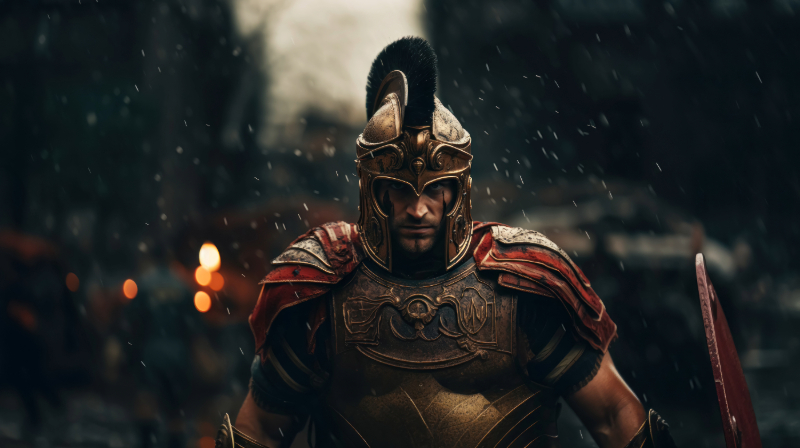
That hasn’t stopped some from trying, though. In 1798, Napoleon, in an attempt to create a new European empire, took the Pope captive. Like others before him, Napoleon had aspirations for a revived Roman empire but also like others before him, his empire ended in ruin. Since then, others have tried to conquer Europe—communists and fascists alike. Hitler tried in World War II, Stalin tried in the Cold War and figures like Vladimir Putin are trying today, though the terms are different. These figures have tried through warfare, coercion, as well as diplomacy, the European economic community or a “spirit of cooperation”.
But the dream for peace and unity is ultimately not in vain.
Hope for the future
Daniel continued explaining the interpretation of the dream: “In the time of those kings, the God of heaven will set up a kingdom that will never be destroyed, nor will it be left to another people. It will crush all those kingdoms and bring them to an end, but it will itself endure forever. This is the meaning of the vision of the rock cut out of a mountain, but not by human hands—a rock that broke the iron, the bronze, the clay, the silver and the gold to pieces” (Daniel 2:44-45).
God’s kingdom will be ushered in and it will be an eternal kingdom that cannot be destroyed and will no longer allow rulers who enslave and exploit. All are welcome in. It will not be ruled by a “Pax Romana” (Roman peace) but by true peace, equity and justice. That’s because its ruler will not be a despot, dictator or degenerate; Jesus Christ, the Son of God will rule over all creation. Jesus Christ, the one who suffered under the boot of the Roman Empire and who gave Himself as a sacrifice for the world. Jesus Christ, the risen Lamb who will return as a conquering Lion.
It’s an inspiring idea—but will it come true? Well, everything else in the dream has. Daniel gives this guarantee: “The great God has shown the king what will take place in the future. The dream is true and its interpretation is trustworthy” (Daniel 2:45).
King Nebuchadnezzar could have sent Daniel away, believing it was nonsense. Instead, he said this: “’Surely your God is the God of gods and the Lord of kings and a revealer of mysteries, for you were able to reveal this mystery.’ Then the king placed Daniel in a high position and lavished many gifts on him. He made him ruler over the entire province of Babylon and placed him in charge of all its wise men” (Daniel 2:47-48).
The same God who sent the dream to King Nebuchadnezzar, who knew the history of the world’s empires in advance, has set in motion a plan to reclaim the human race from the hurt and disease and death that we inflict on each other. As biblical researcher Frank Hasel recently said, “Daniel 2 reminds us that the history of this earth is in God’s hands and that we don’t have to fear the future.”
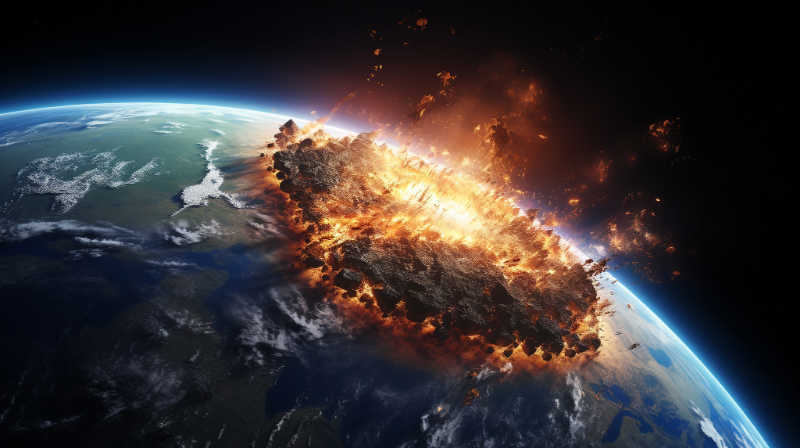
While the European experiment may not succeed, we all hope for a better, more equitable world. And we can work to make the world a better, more peaceful place. We must. But human nature seems to dictate that we will always be tempted to take advantage of someone else; we will always protect our own interests and the interests of our family and our tribe in front of others. And so, it seems it is an impossible dream to achieve peace and prosperity for all in our lifetimes.
Written more than 2000 years ago, the book of Daniel continues to ring true today. It is also an invitation. We don’t know the future, but we can know the God who does. Even though the world is an uncertain place, the Scriptures describe a future filled with hope and a God who invites us to join Him in it.












